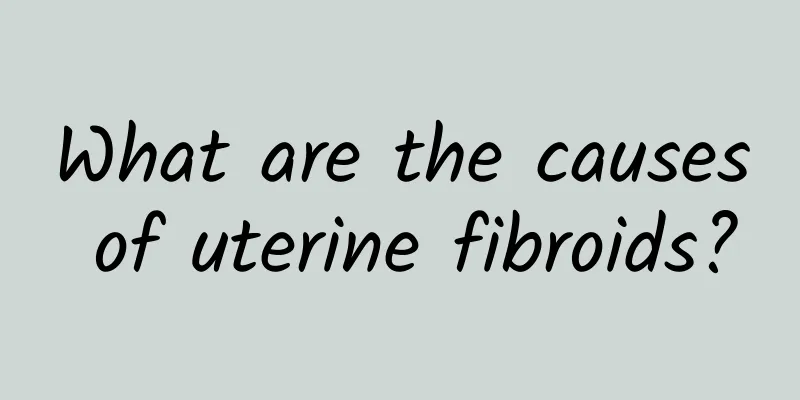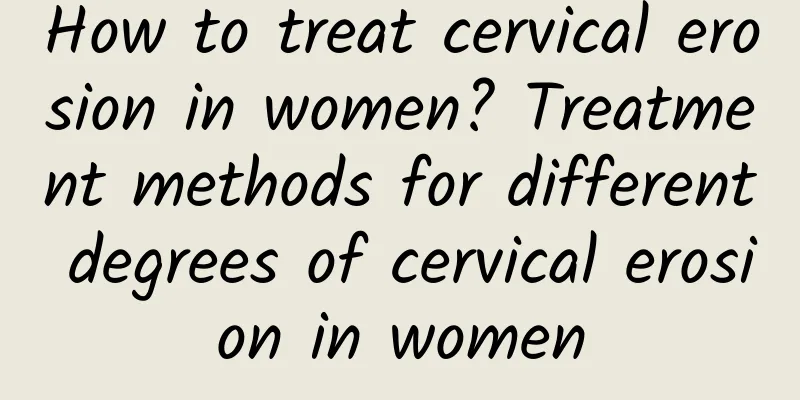Adenomyosis: Foods not to eat

|
Patients with adenomyosis need to avoid eating foods with high hormone content, strong irritation and heat, so as not to aggravate the condition or induce worsening of symptoms. Avoiding hormone foods, reducing the intake of irritating foods and adjusting eating habits can help stabilize the condition and improve the quality of life. 1. Avoid foods that contain too much hormone The formation of adenomyosis is closely related to the abnormal secretion of estrogen levels. Patients should try to avoid consuming foods with high animal hormone content, such as animal offal (such as pig liver, pig brain), some deep-sea fish (such as salmon) and unapproved health products or tonics on the market. Such foods may aggravate the fluctuation of estrogen in the body, thereby stimulating uterine tissue and worsening the condition. It is recommended to choose high-quality plant protein such as tofu and chickpeas, and match them with whole grain foods rich in dietary fiber, which is conducive to balancing hormone levels in the body. 2. Reduce the intake of irritating foods Spicy condiments (chili, pepper, garlic), alcoholic beverages (white wine, red wine), and drinks with high caffeine content (strong tea, coffee) may stimulate the endocrine system, induce dysmenorrhea or aggravate inflammatory response. This is particularly unfavorable for patients with adenomyosis. The intake of such foods should be reduced as much as possible in life, especially when symptoms are obvious. It is recommended to use low-caffeine herbal tea instead of strong tea and coffee to provide gentle care for the body. 3. Avoid hot and high-calorie foods From the perspective of traditional Chinese medicine, adenomyosis is considered a disease of stasis and heat. High-calorie and hot foods such as fried foods, mutton, longan, lychee, etc. will increase the "internal heat" in the body, thereby aggravating the symptoms of dysmenorrhea and uterine lesions. It is recommended to reduce the intake of greasy food, mainly steam or boil for cooking, and choose more ingredients that clear heat and detoxify, such as winter melon and celery, to help the body regulate. The importance of balanced nutrition Although dietary restrictions can reduce fluctuations in the condition, ensuring a balanced diet is equally important. Patients should pay attention to supplementing nutrients such as iron, vitamin B, and vitamin E to alleviate anemia and antioxidant needs caused by menorrhagia. Eating lean meat, spinach, nuts, and vegetable oils in moderation can not only improve menstrual pain, but also maintain overall functional stability. Scientific dietary management is crucial to the control of adenomyosis. Unhealthy diet may aggravate symptoms. Patients should adjust their eating habits according to their condition and consult professional doctors regularly for comprehensive treatment to improve symptoms. |
<<: What is endometriosis? Is it serious?
>>: Cervical cyst hypertrophy and hardness
Recommend
What are the symptoms of different types of vaginitis?
Autumn is a beautiful season, but some women cann...
Experts explain two major treatment methods for ectopic pregnancy
Choosing the right treatment method for ectopic p...
Patients with chronic adnexitis usually experience abdominal pain
Patients with chronic adnexitis generally experie...
How to treat ovarian cysts surgically
How are ovarian cysts treated surgically? Ovarian...
What causes uterine fibroid pain? What to do if uterine fibroid pain
What causes uterine fibroid pain? What to do if u...
Should ovarian cysts be removed from the uterus? What are the consequences of not treating them in time?
Does ovarian cyst require hysterectomy? What are ...
Daily care for patients with Bartholinitis
Experts say that among the pathogens of Bartholin...
How much does artificial abortion cost
The cost of an abortion ranges from a few hundred...
Drinking orange juice and green tea can prevent dementia! 4 tips for diet, using your brain more and exercising more are the keys to success
As the population ages, a wave of dementia is com...
What is the cause of female adnexitis?
Many women suffer from adnexitis, which causes so...
How long does it take for severe cervicitis to turn into cancer?
How long does it take for severe cervicitis to tu...
Endocrine factors are related to the causes of ovarian cysts in women
Female ovarian cysts are a gynecological disease ...
How much does it cost to remove the IUD in Hangzhou
How much does it cost to remove the IUD in Hangzh...
What preparations and checks are needed before abortion?
Before artificial abortion (abbreviated as induce...
What are the benefits of fumigation for uterine fibroids? Fumigation is helpful for uterine fibroids
What are the benefits of fumigation for uterine f...









